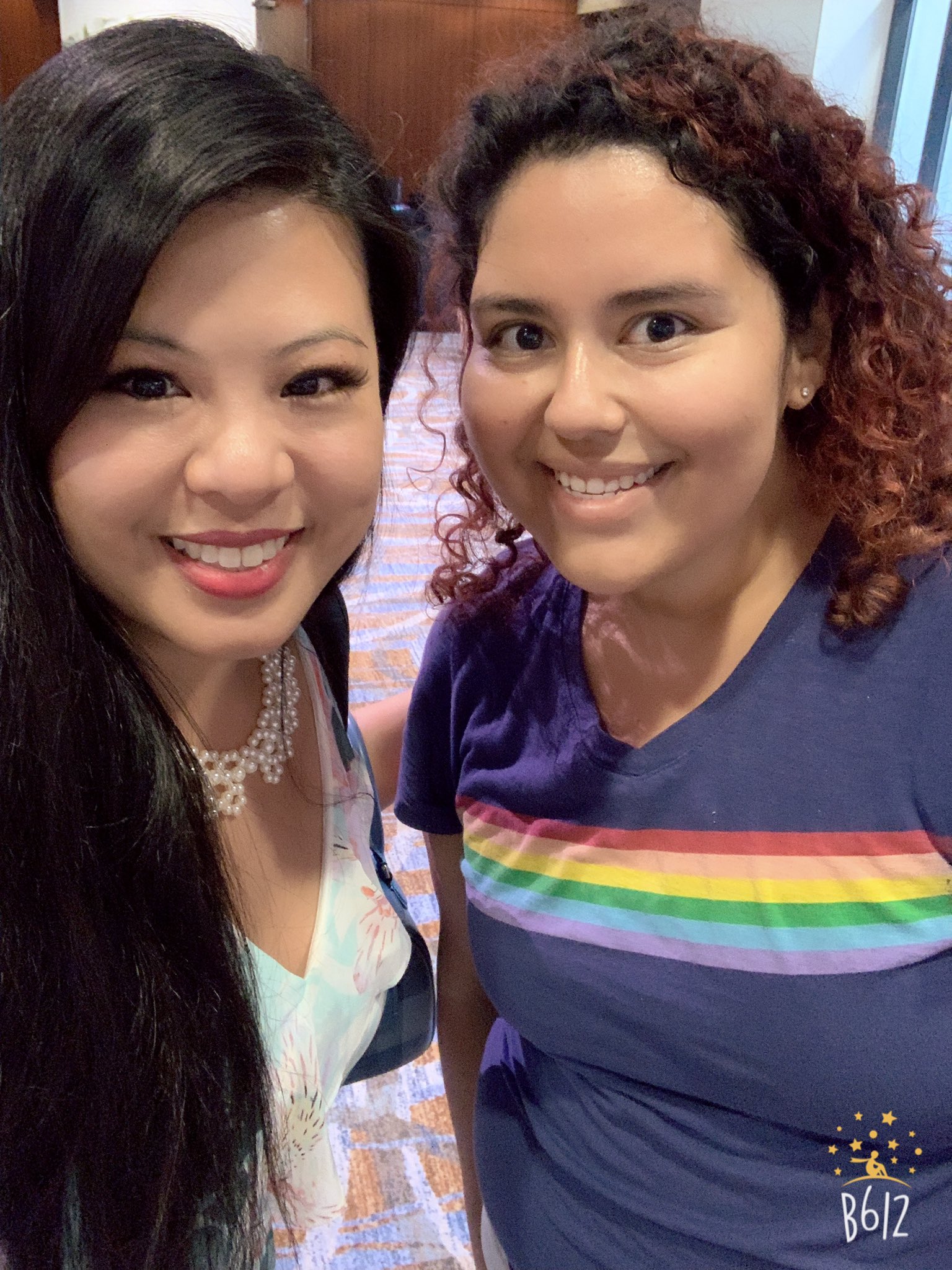My second week at Cypress, our office hosted the February session of the Atlanta JavaScript meetup. This was a special presentation featuring two well-regarded speakers on software development—ThisDot Labs CEO Tracy Lee and Applitools Evangelist and Senior Architect Gil Tayar. 🔥🔥🔥
This was a wonderful welcome for me—a chance to meet with the Atlanta JavaScript community in my new position and representing the company I had just joined.
I had already been a fan of Tracy for a while—I even forced her to take a selfie with me last year at Refactr.Tech. 👇🏽

In addition to her consultancy work, she is also a Google Developer Expert, Microsoft MVP, RxJS Core Team member, a Google Women Techmakers Ambassador, a frequent keynote speaker at conferences, heads up Community Relations for Node.js at OpenJS Foundation, is the host of the Modern Web podcast, organizer of This.JavaScript, Contributor Days, Google Developer Group Silicon Valley and Triangle, and RxWorkshop.
Phew!
She spoke on the importance of developing an inclusive architecture within software teams with what she called the PAM stack - Process, Abstractions, Mentorship.
“Web development is hard,” she said, adding that “complexity is a barrier to entry in our industry.”
For me, she was preaching to the choir. I decided in early 2019 to jump into software engineering full time after being a hobbyist web developer for two decades. I didn’t always feel like the tech industry was a place for me—someone without a computer science degree and who checks a lot of boxes on those self-reported diversity forms.
Still, I enrolled and attended the full-time, full-stack software engineering boot camp at Georgia Tech in the spring. My classmates were a lot like me—some of them were switching careers, others had a more traditional computer science background, others were brand new to coding but eager to learn.
In particular, I noticed that my boot camp classmates were also incredibly diverse. We came from different countries, spoke different languages, and represented a wide array of backgrounds and experiences.
As Tracy talked about her work reducing barriers to entry in the tech industry, I thought about how tech is more inclusive than ever. Frameworks, boot camps, open source software, and free online resources have made it easier than ever for beginners to jump in. These tools increase confidence and provide a playground to learn and make mistakes without the need for expensive, complex systems and toolchains.
In the article “Five Ways Digital Technologies Are Lowering The Barriers To Entry For New Businesses” from Cognizant, they cite easier acquisition of deep knowledge and simpler set up of IT hardware as two of the ways these barriers are being reduced. This applies to new businesses, but the same can also be said for those looking to break into tech as individual contributors.
Over the past year, I became inspired to get more involved in the Atlanta tech community, particularly around creating opportunities for those from underrepresented backgrounds. I talked about my experience learning a new code base at my first developer job after graduation. I helped launch Out in Tech Atlanta to provide a space for the intersection of the LGBTQIA+ and tech communities. I answered questions about boot camps, reviewed resumes, and shared resources. I felt very fortunate that I had broken in and wanted to help others get there too.
When Gil Tayar (an industry veteran with a long list of achievements) stood up and started his talk about front-end testing, he said something that made it all click for me—why I was so excited to work at Cypress, and how it dovetailed perfectly with my passion for championing the underrepresented in tech.
He said: “We write tests to remove our fear of coding.”
We write tests to remove our fear of coding.
Cypress as a company represents a lot of things I love about tech—the Test Runner is free and open source, we’re a distributed team, and I get to work with some incredibly smart people to make it easier for people to write and test better software.
Because that’s what testing is about. It’s about removing the fear of coding. It’s about letting people take risks, break things, and then fix them again. It’s about reducing barriers to entry for software development so we can invite as many people as possible to the party. By making the testing process easier, accessible, and—in the case of our Test Runner—free, Cypress is helping improve the developer experience ecosystem.
And that’s what I love about Cypress, and why I’m very proud to be a part of this great team.
